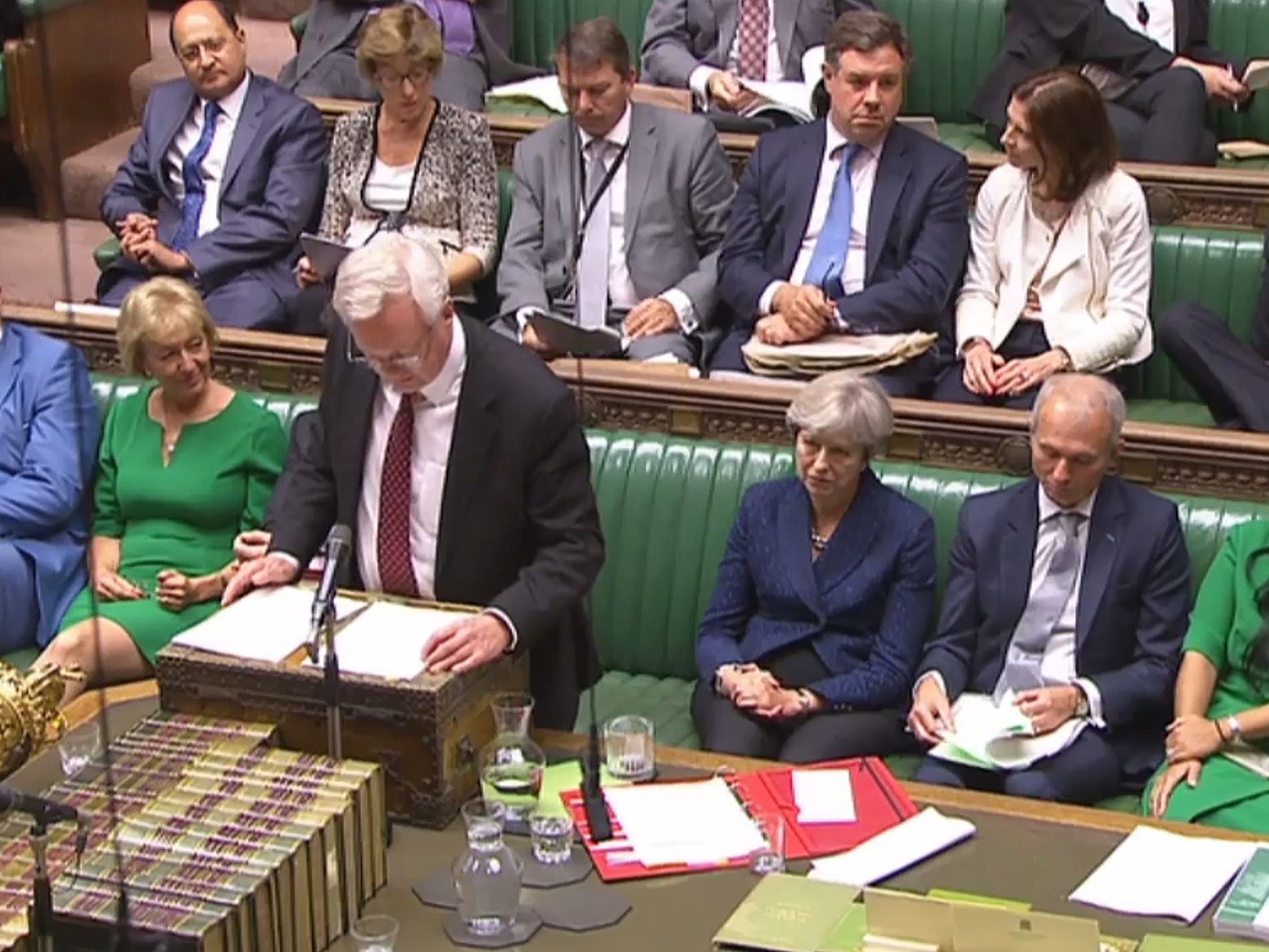All four parts of the UK must be heard in the Brexit negotiations
The votes by the people of Scotland and Northern Ireland to stay in the EU ought not to be brushed aside by the tyranny of the English (and Welsh) majority

The central fact about last year’s referendum for those who support our departure from the European Union is that a clear, if narrow, majority voted to Leave. For those who opposed this decision, however, The Independent included, there is another important and undeniable fact: that two constituent parts of the United Kingdom voted to Remain.
Legally, that Scotland and Northern Ireland voted to stay in the EU cannot affect the outcome. But politically, those votes lend moral force to the argument that, if we must leave the EU, we should maintain the closest possible relationship with our neighbours.
That is why it is so important that the Scottish and Welsh governments, as we report today, are preparing to withhold their consent to the Prime Minister’s EU (Withdrawal) Bill, currently before Parliament. Of course, Wales voted to Leave, by almost the same margin as England, but the principle of devolution stands: that the Welsh government ought to have its say – and the debate at this stage is primarily about what kind of Brexit we should have, rather than about whether it should happen at all.
It is also welcome that the Scottish and Welsh governments are cooperating, because they are speaking by proxy for Northern Ireland, where the government has been suspended while the Democratic Unionist Party and Sinn Fein pursue their separate political agendas.
The Prime Minister and David Davis, the Brexit Secretary, pay their respects to the principle of devolution, saying that the Government will “seek the consent of the devolved legislatures” for the bill. But it is merely politeness that prevents them from pointing out that, should such consent not be forthcoming, the bill will become law in any case, provided it has the necessary votes in the House of Commons and the House of Lords.
The Government probably does have those votes, but the voices of the devolved administrations add to the pressure for amendments to the bill. Some of those amendments may well be winnable, especially those to ensure parliamentary oversight of ministerial powers and to ensure that powers repatriated from Brussels are passed on to Edinburgh, Cardiff and Belfast.
In the greater battle, however, over the terms of our departure from the EU, the assertion of rights by Scotland and Wales strengthens the argument made by Sir Keir Starmer, for the Opposition, that the UK should ask to remain in the single market for a transitional period after we leave.
The votes by the people of Scotland and Northern Ireland to stay in the EU ought not to be brushed aside by the tyranny of the English (and Welsh) majority. The best way to reconcile the wish of the majority of the UK to leave but of constituent parts to stay is to negotiate the softest possible Brexit.
Labour’s proposal, that we should continue to share the benefits and responsibilities of the four freedoms of the single market for a while after ceasing to be a full member of the EU, allows both parts of the referendum verdict to be respected. The voices of all four parts of the United Kingdom must be heard.
Join our commenting forum
Join thought-provoking conversations, follow other Independent readers and see their replies
Comments